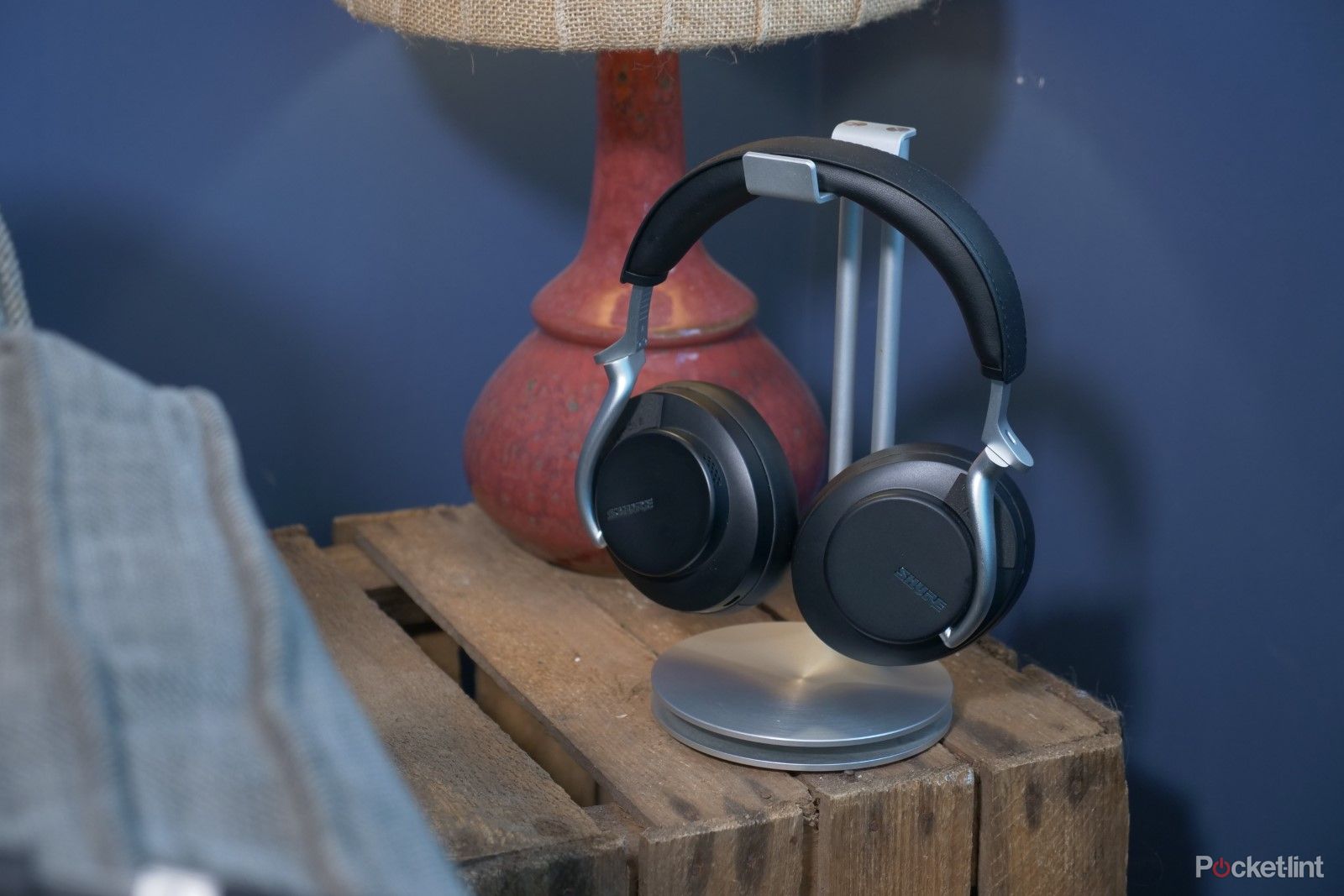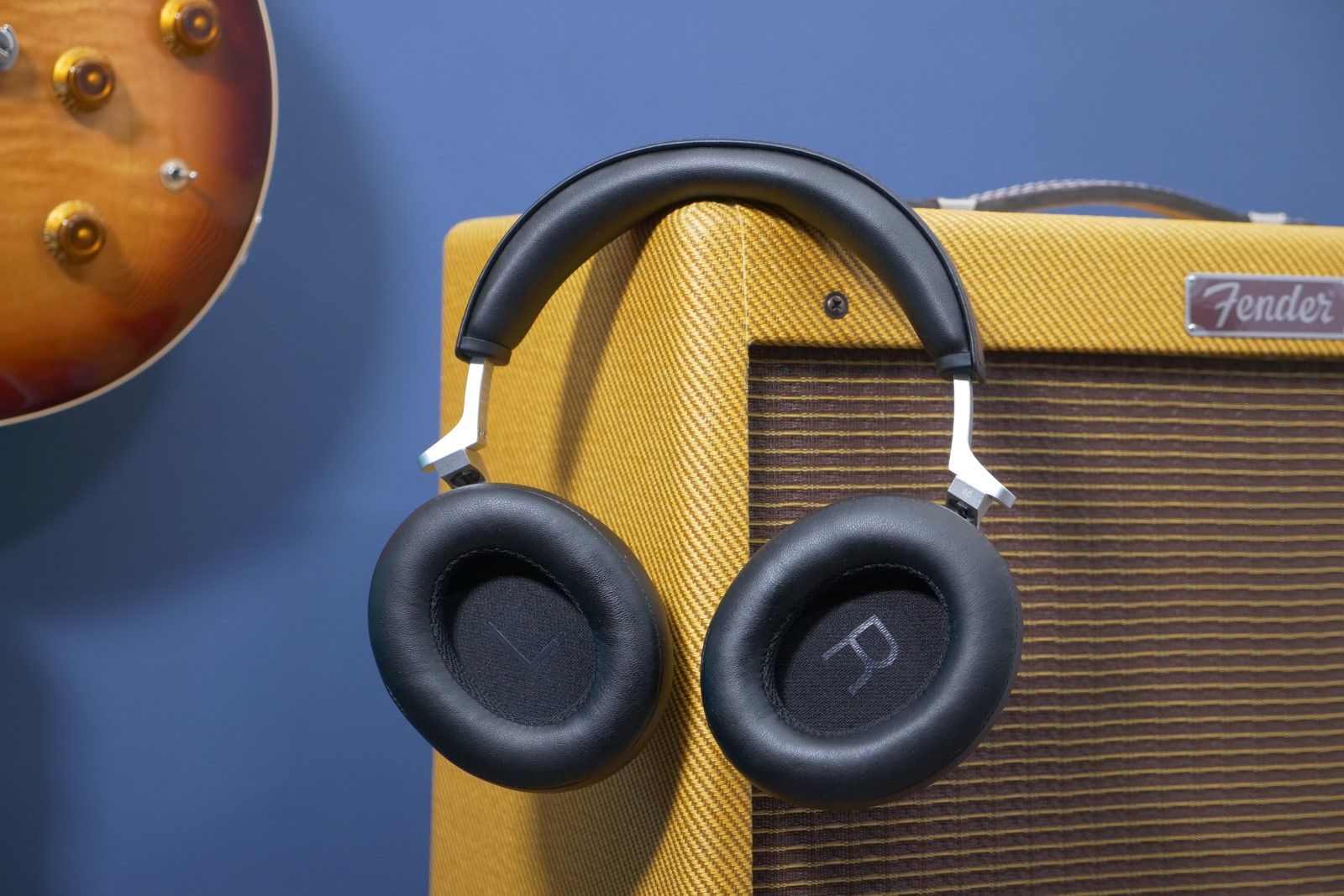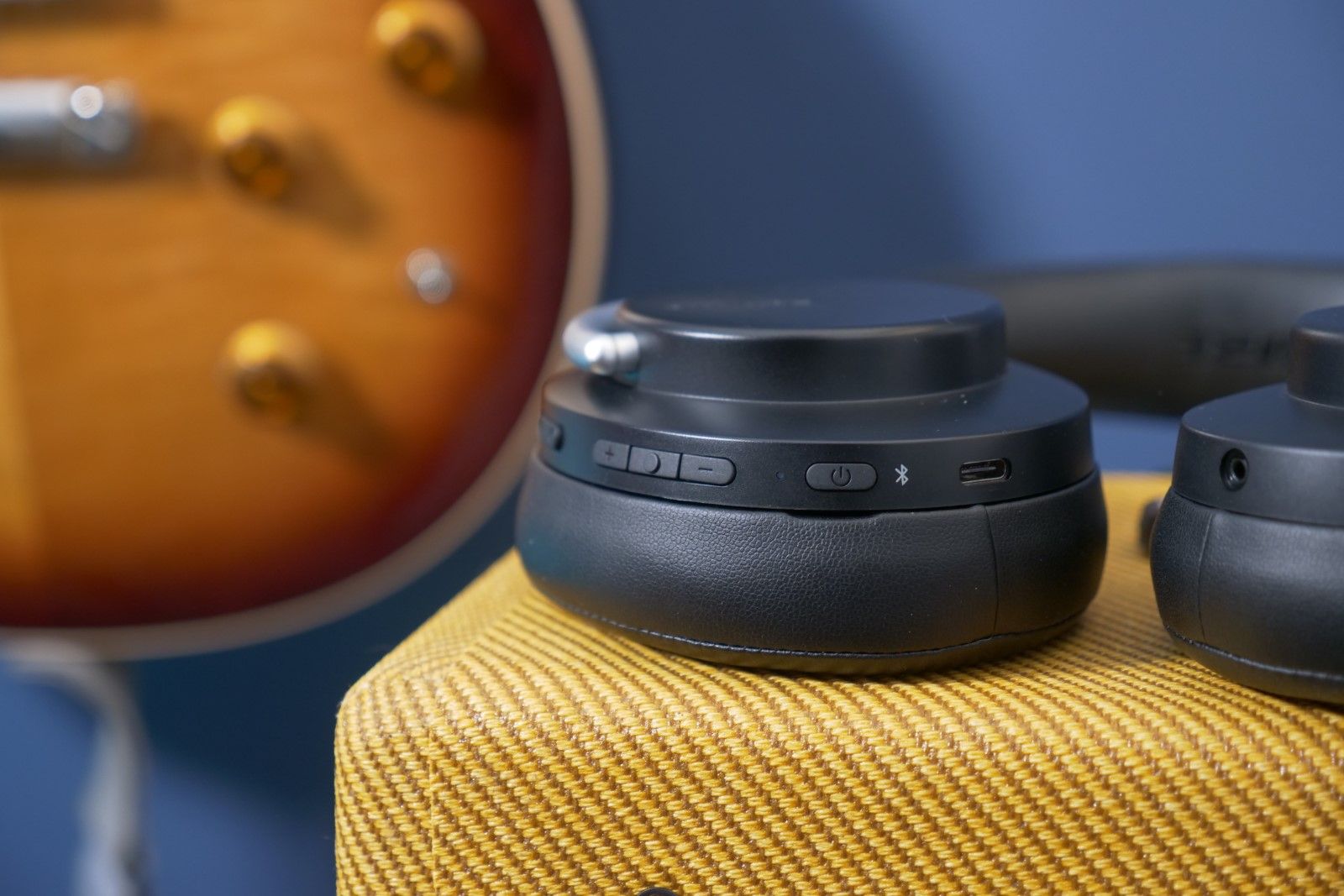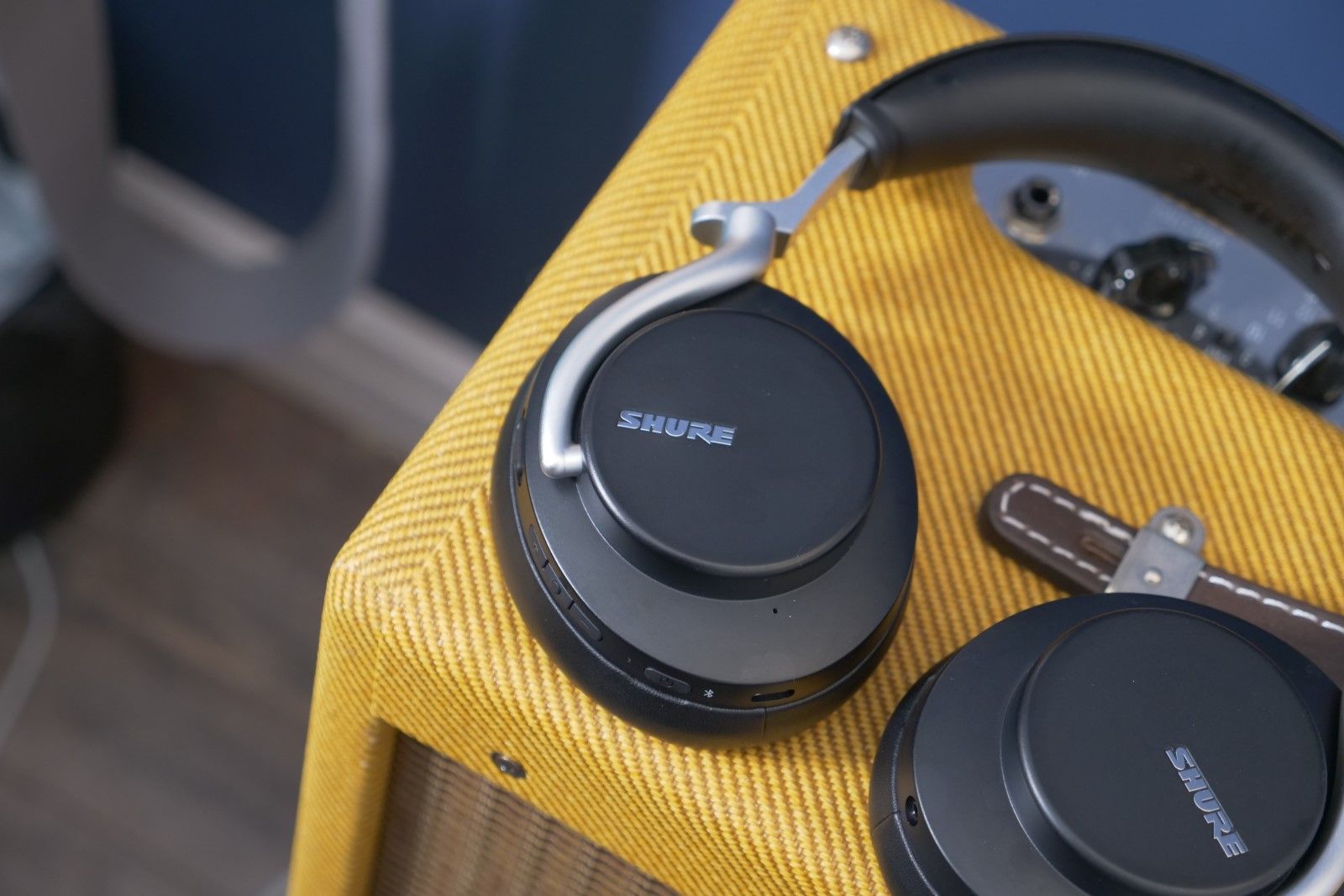There are plenty of trendy brands in the world of headphones - these days it's Bose, Sony and Beats. But there are other widely respected brands too, such as Shure, which sure knows how to do sound.
The Shure Aonic 50 was launched alongside the Aonic true wireless earbuds, promising stunning audio quality, durable build and performance. Shure might not be a classically mass-market brand name, but among musicians and performers it's often the first name on the lips of many.
Indeed, the Aonic 50 offers among the best sound you'll find in headphones at this price point. Here's why it's a name to not overlook.
Our quick take
Sometimes a pair of headphones comes around that doesn't necessarily scream at you about its latest market-leading technological advancements or snazzy minimalist design - and yet somehow still works its way into your heart.
That's how we feel about the Shure Aonic 50. These over-ears are comfortable to wear for long periods, feel like they can take a knock or two, and sound superb. What more do you need?
Shure's noise-cancelling cans might be expensive, but thanks to reliable day-in-day-out performance we think it's one of the best-sounding pairs of headphones in this price bracket. Shure sure knows sound.
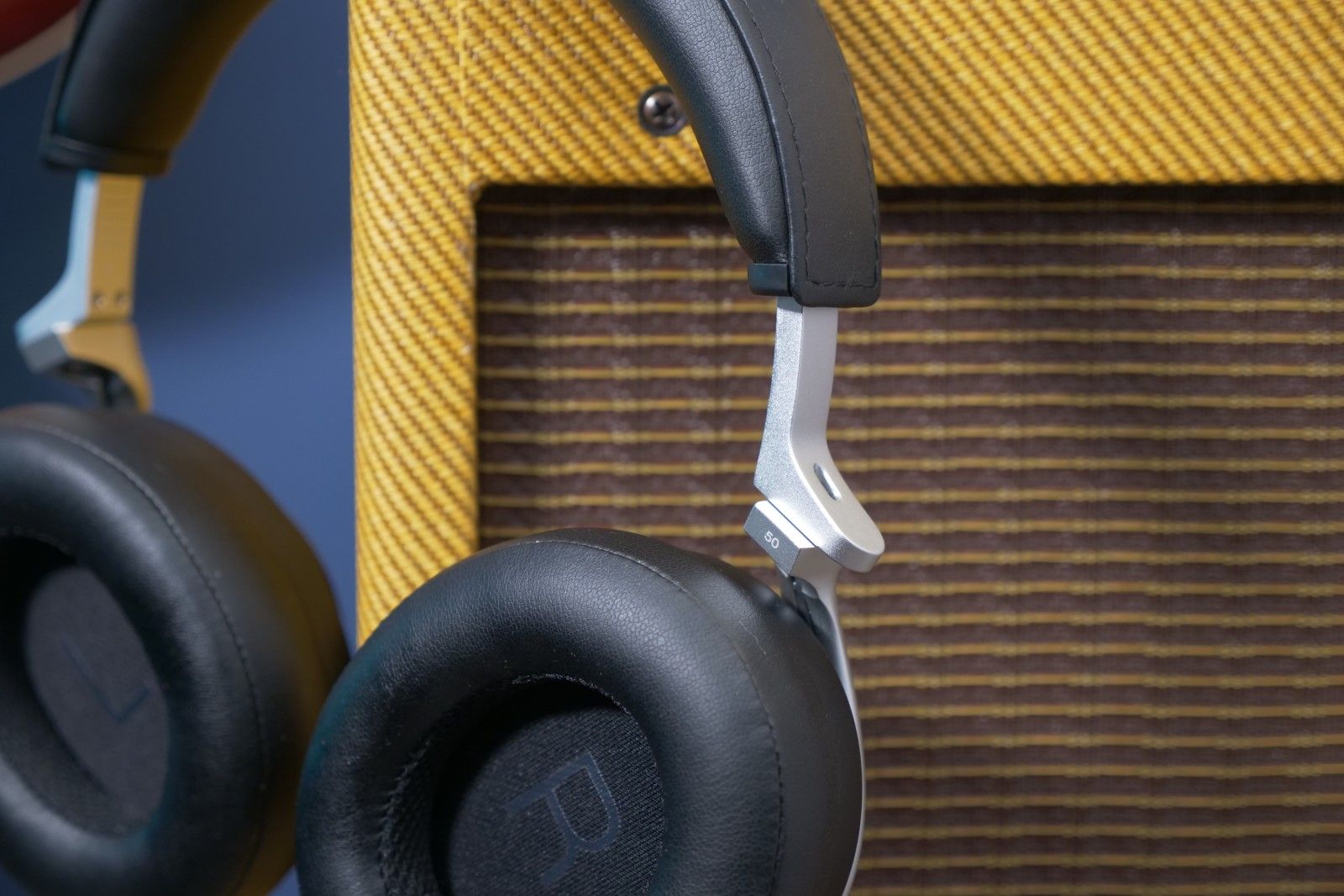
Shure AONIC 50
- Fantastic sound quality
- Effective noise-cancelling
- USB-C input for Hi-Res Audio
- Quite pricey
- Not the most portable
Design and build
- Physical button controls
- Well padded headband and earcups
- 3.5mm input and USB-C for wired connection
There's nothing entirely special about the way the Shure Aonic 50 looks, or the materials it uses, but at the same time that's what we love about the design and build. It's all about practicality and everyday usability.
The earcups, as an example, are generously padded with a thick ring of foam inside a super soft outer layer of synthetic leather. That's true of the headband arch too, which can be worn for hours on end without creating any soft/sensitive spots on the top of the scalp.
Despite its practicality, there's something quite individual about the shape and design of the forks/arms that attach the cans to the headband. While not especially standout, it's enough of a unique shape to make these distinguishable from the likes of Sony, Bose, Sennheiser and Beats.
Externally, there's liberal use of plastic on each can. It feels sturdy and like it could take a knock or two, and the 90-degree rotation keeps them flat for storage. This rotation motion feels smooth and strong, it's not loose at all - which helps with the Aonic 50's overall feeling of sturdiness.
Usually, when headphones are equipped with a clicky ratchet-like mechanism for adjusting the length of the headband, we complain. But in the case of Shure, some thought has gone into the way it looks and feels. The arms are metal, but while you get that click when you slide it up and down, it doesn't feel rattly or cheap.
What's really useful is that there are marker lines printed all the way up each arm so if you require there to be five lines to be showing for it to be adjusted to your head size, you know to adjust it to the exact same length each time you unfold them. What's more, you can guarantee the left extension matches the right to make them symmetrical.
All the buttons and controls that you need live on the right can, around its bottom edge. There's the usual cluster of three controls containing play/pause, volume up and volume down buttons. It's easy to distinguish them thanks to a protruding little knob on the play button. To skip tracks you can either quickly double-press to skip forwards or triple press to skip back. There's a Type-C port for charging too, plus on the left can you'll find the 3.5mm input for audio.
Overall performance and battery
- Bluetooth 5 (10 metre range)
- Qualcomm aptX & aptX HD
- 20 hours playback
As far as wireless performance goes, the Shure Aonic 50 is as solid a pair of headphones as we've ever used. Regardless of whether you use an iPhone or an Android phone with Qualcomm's aptX HD technology equipped for lag-free Hi-Res Audio, you'll be well served by the Aonic.
Bluetooth 5 wireless with up to 10 metres of range also ensures you don't even need to be in the same room as your music source. So if you're listening to music in your home office, you can pop to the kitchen to make a coffee without having to take your phone with you. Just leave it on your desk, it'll be fine.
To call the 20 hours battery life disappointing would be unfair. Quite frankly, for most people, being able to listen to four hours of music a day for a five-day workweek is more than enough, especially if you're only using the headphones during a commute. Even if you're on a long-haul flight across multiple timezones, these cans should more than get you through.
That said, there are longer-lasting headphones out there, for those who need a lot of battery between charges. You'll likely get a few more hours with the Beats Studio 3 Wireless or the Master & Dynamic MW65. Bose's excellent Noise Cancelling 700 Headphones are about on par.
Sound and noise-cancelling
- Adjustable active noise-cancelling (ANC)
- Environment mode for hearing ambient noise
While there's so much to enjoy about the Aonic 50, it's the sound quality that'll keep you using them time after time. Paired with a phone, straight out of the box, the audio is well balanced. Bass isn't on the heavy side, but you get enough of it to feel it, while there's a lot of clarity and detail in the top-end.
As with any good pair of headphones, a test of how good they are is how well you can discern background subtleties in various tracks. With Shure, you get that in abundance. Some tracks might have a barely perceptible guitar plucking as part of the backing track that would often be hidden by the lead vocals, drums, bass and lead instruments. But with Shure's Aonic 50, you can hear them as clear as a bell, without losing the feeling of the song.
For those who want to adjust the sound, there's an app downloadable from the Play Store or iPhone's App Store that lets you choose from a number of preset EQs, while also allowing you to create your own custom one.
This app also lets you see ANC and ambient sound levels. Although you can't control these using the app, you have to use the physical switcher on the cans themselves. That switch lets you move between three modes: you can have max noise cancelling, normal noise-cancelling, or let in the environmental ambient noise from around you more clearly.
In max mode the noise-cancelling is strong. It does a good job of cutting out those consistent low drones of chatter and will reduce the rumbling of train/plane engines and motorway noise, without completely blocking everything out. Despite that, in max mode you will find it changes the sound of the music, making it a little too flat and harsh, so it's worth keeping it in 'normal mode' for best audio enjoyment and with a decent level of external noise suppression.
To recap
Shure's noise-cancelling cans might be expensive, but thanks to reliable day-in-day-out performance we think it's one of the best-sounding pairs of headphones in this price bracket. Sure, the design is a tiny bit bulky, but overall these over-ears have quickly become one of our most dependable tools. Shure sure knows sound.

